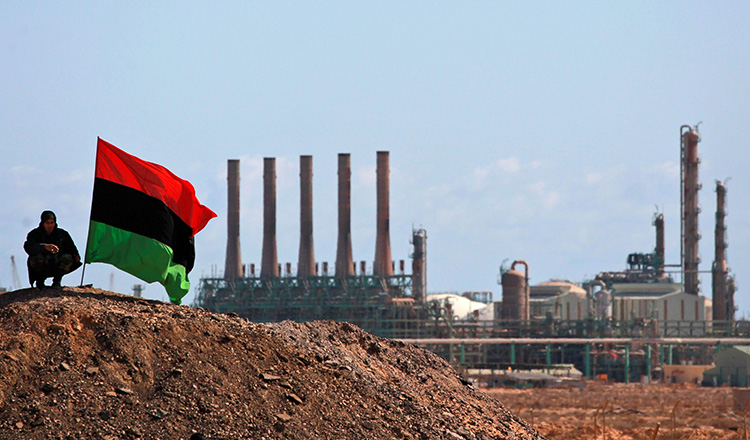
Libya’s Prime Minister Abdul Hamid Dbeibeh on Saturday vowed to overcome the country’s economic challenges, with a particular focus on the energy sector.
Speaking at the Libya Energy&Economic Summit 2024, organized by Energy Capital & Power (ECP) under the theme, “A New Libya: Built on Energy,” Dbeibeh outlined a series of a mbitious programs aimed at revitalizing Libya’s economy.
“In these economic circumstances governed by numerous global challenges, the government of national unity has sought to create mission programs to revitalize the national economy in general and address difficulties in the fields of development, oil, gas, and particularly in electrical energy,” Dbeibeh said.
Dbeibeh’s statement underlines the government’s commitment to comprehensive economic reform, focusing on oil and gas sectors that have long been the backbone of the Libyan economy.
The country’s economy is highly dep endent on oil and natural gas exports, which account for approximately 65% of its gross domestic product and over 90% of government revenues.
The prime minister’s speech comes at a pivotal moment for Libya, a nation striving to rebuild its economy amid political transitions and global economic pressures.
Recognizing the critical role of stable infrastructure in economic development, Dbeibeh highlighted recent successes: “We have made local efforts to stabilize the power grid, providing a satisfactory situation for the Libyan citizens.”
As Libya is trying to recover from damage incurred during 2011 Arab Spring uprisings, international governments and investors are closely watching the country to see how it leverages its vast energy potential.
Home to the largest oil reserves in Africa, Libya has historically been a vital oil exporter, particularly to European markets.
It is also a member of the Organization of the Petroleum Exporting Countries (OPEC) and has one of the largest oil reserves, totaling over 48.4 billion barrels. In addition to oil, Libya has substantial proven natural gas reserves of 53 trillion cubic feet.
With plans to boost oil output from the current levels of 1.2 million bpd to 2 million bpd within the next two to five years, the country is working on modernizing operations and infrastructure in the upstream, middle, and downstream sectors of the oil and gas industry.
